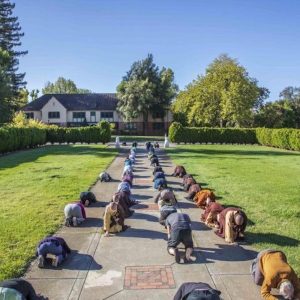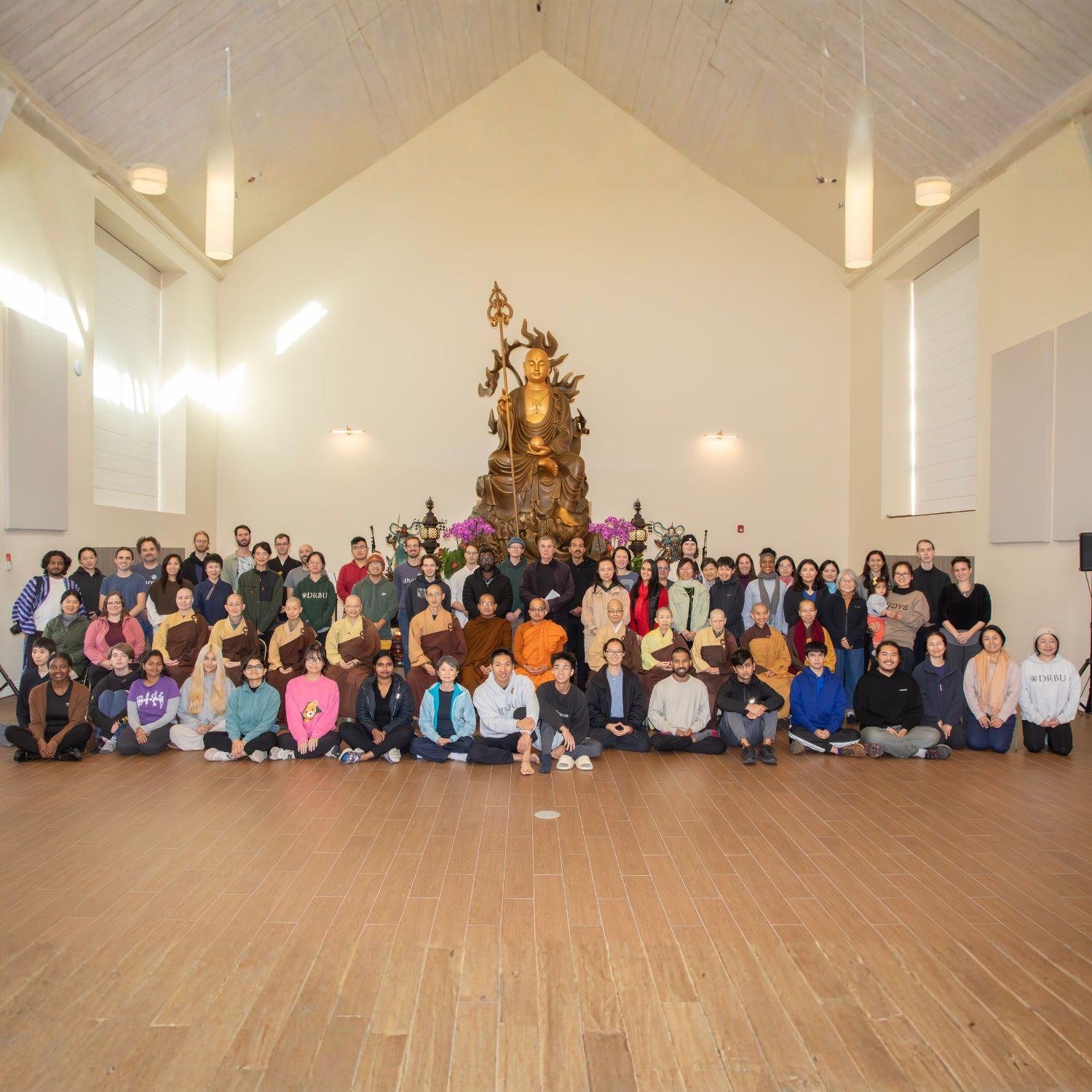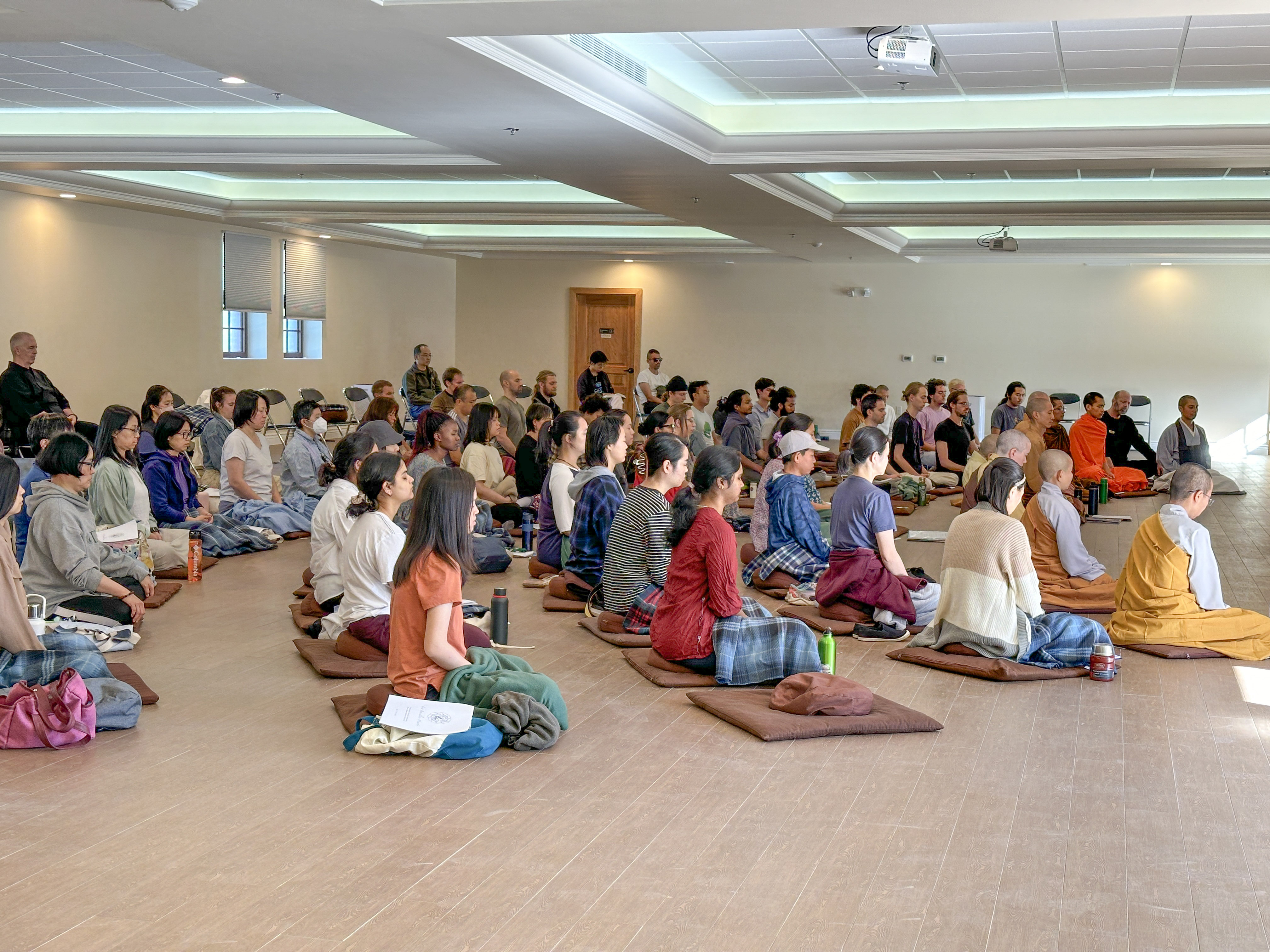
Professor Martin Verhoeven: Bowing as “Heart Cleansing”
Bowing is a widely practiced but often misunderstood gate of understanding. Bowing is a powerful form of engaged Buddhism, not because it is invoking the heavens and Buddhas and Bodhisattvas to save us, but because we are making ourselves agents of change here and now, in this world, in this time, in this thought and deed. Change your heart; change the world. This is called “mind-ground bowing” as it goes to the heart and core of consciousness itself, the generator of “the 10,000 things.” Mind-ground bowing is meant to activate inherent wisdom by revealing and removing karmic obstacles—physical, verbal, and mental impediments to awakening from accumulated and layered unwholesome and thoughtless actions.
Properly done, it is less about who or what one is bowing to, than who or what one is bowing away from—unexamined, and often ensnaring habits, views, and patterns of perceiving and reacting that form almost a paradigm prison around and over one’s true self. One is bowing away from the “self” or, more precisely, interrupting the I-making or karma of selfing at the heart of suffering (dukkha). Seen as bowing-to, the object of attention, reverence, or “worship” shifts to all beings, including the entire natural world. Your big self will melt away as you bow to all living beings. Bowing to all living beings is an act of “un-centering our minds from ourselves” (Jeffers 399) and realigning with an interconnected whole. [1] The act of bowing down signifies and actually feels like a release, an emptying, a softening and letting go. In a profound psycho-physical way, it induces a vulnerable openness conducive to the dismantling of attachment and clinging that then opens the way to becoming new, revitalized, and restored.
It is worship, yes, but in a deeper, more existential sense of bending one’s being to a quiet stillness. To reflect, repent, renew. [2] To say, “I am sorry for all the harm and damage I have done to myself, others, and the earth itself because of my greed, selfishness, fighting, hatred, and foolishness; I acknowledge and empty out this baggage, let it go, and make myself new [3]. From this bow forward, this day forward. . . I will be different, mindful, conscience-activated, compassionate, generous. Bowing outside, not just in the Buddha Hall, particularly brings home the closeness of the wider natural world to our shared existence; it reduces the small envelope of the narcissistic, artificial, sheltered surround we live in most of the time (now exaggerated by social media and technological enframing).
The “all living beings,” in our time especially, is a contemplative focus that recognizes our inter-being and inescapable interconnectivity to the wider social sphere and natural world so perilously hanging by thread right now. [4] Restoring balance in this larger world is intimately tied to restoring balance in one’s own person. Bowing is not a private or even just a personal form of cultivation as it is based on and activates an awareness that the big problems in the world stem from our own small greed, animosities, alienations, and plain unaware ignorance. That is why heart-cleansing bowing is described as “the biggest changes begin in the smallest of places.” [5] Change your mind; change the world. And only by doing this nitty-gritty work in the smallest of places can we hope to impact the world in the biggest of ways.
Works Cited
Laozi, and Arthur Waley. The Way and Its Power: Lao Tzu’s Tao Te Ching and Its Place in Chinese Thought. London: Unwin Paperbacks, 1977.
The Flower Adornment Sutra: Chapter Forty – Entering the Inconceivable State of Liberation by Means of the Practices and Vows of Samantabhadra Bodhisattva. A Commentary by Venerable Master Hsuan Hua (Xuanhua) 宣化. Buddhist Text Translation Society, 2020.
Hsuan Hua (Xuanhua) 宣化. Water Mirror Reflecting Heaven: Collected Writings of Tripitaka Master Hsuan Hua. Translated by Dharma Realm Buddhist University. Buddhist Text Translation Society, 1982.
Jeffers, Robinson. “Carmel Point,” in The Collected Poetry of Robinson Jeffers, Three Volumes, Vol. 3. Edited by Tim Hunt. Stanford University Press, 1991.
The Sixth Patriarch’s Dharma Jewel Platform Sutra. Translated by the Sixth Patriarch Translation Committee of the Buddhist Text Translation Society. Buddhist Text Translation Society, 2014.
Heidegger, Martin, and William Lovitt. The Question Concerning Technology and Other Essays. Harper Perennial, 2013.
Martin Heidegger, The Question Concerning Technology, (1954)
[1] Take, for example, the tree in the wilderness mentioned in chapter 40 of the Avataṃsaka Sūtra: “The regal Bodhi-tree, growing in the wilderness of birth and death is the same: all living beings are its roots, all Buddhas and Bodhisattvas are its flowers and fruits.”
[2] See Tao Yuan-ming, “The Return”: “My field and gardens are choked with weeds. Why should I not return?”
[3] “May I from the preceding moment of thought, the present moment of thought, and in the following moments of thought, in every moment of thought, be free of any stupidity and confusion; I now completely repent of all previous stupidity, delusion, and unwholesome, unskillful karma done in the past, and may their effects be wiped away, and may I never do them again…” (The Sixth Patriarch’s Dharma Jewel Platform Sutra 54).
[4] See Master Hsuan Hua’s Preface to Water Mirror Reflecting Heaven.
[5] “Plan for what is difficult while it is easy. Work at what is great while it is small. The difficult undertakings in the world all start with what is easy. The great undertakings in the world all begin with what is small. This is why sages never work at great things and are able to achieve greatness” (The Way and Its Power: Lao Tzu’s Tao Te Ching and Its Place in Chinese Thought. 66).


